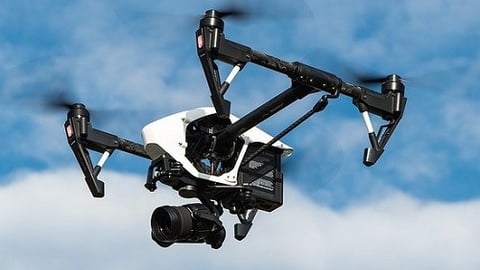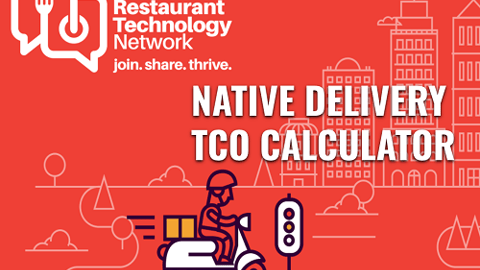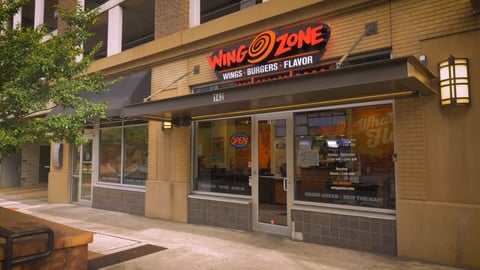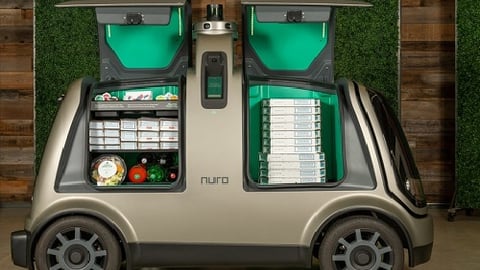How Restaurant Owners Can Protect Themselves Amid COVID Closures
HT recently caught up with Danish Yusuf, the Founder and CEO of Zensurance, who offers advice on how restaurants can protect themselves. Plus, he breaks down the hidden costs and liabilities of in-house delivery and autonomous delivery vehicles and drones.
HT: What should restaurants do to make sure they're tech-ready in 2021 and beyond?
Danish Yusuf, Founder and CEO of Zensurance: The hospitality industry continues to experience technological innovation, such as self-serve kiosks, virtual kitchens, and cloud-based point of sale systems. Third-party and in-house delivery systems have allowed people to experience the comfort of dining in, and the demand for meal kits has skyrocketed in the past year. Both trends will likely continue through 2021. However, humans are social creatures, and it is anticipated that in-person dining will return once health authorities allow it. Restaurants will need to identify a strategy to survive in this two-tiered model.
HT: From an insurance perspective, what are the potential risks involved with pivoting to in-house delivery?
Yusuf: Offering in-house delivery may increase overall profit margins; however, it may also affect a restaurant’s liability insurance. Insurance companies are hesitant to provide coverage to restaurants using employee’s vehicles to make deliveries, leaving business owners with two options: purchasing a company vehicle or insuring their employees. The first option requires the vehicle owner to ensure their employees have clean driver abstracts, which increases the likelihood of an insurance company providing affordable coverage. In contrast, option two requires business owners to regularly verify their drivers are adequately insured, introducing potential compliance issues. Neither option is particularly appealing, and a third-party delivery company is likely more cost-effective for small establishments. Before making any major pivots, restaurants should revisit their current insurance coverage and determine what may need to change.
HT: We see the approval of drone deliveries and robotic/autonomous vehicles in various areas. (For example, Nuro received approval for autonomous delivery in California in December. )From a tech and/or insurance standpoint, how do you recommend these are handled?
Yusuf: There may be value in drone deliveries since it might save restaurant owners from the high fees charged by a third-party delivery app. Naturally, there will be upfront costs for hardware and potentially some service fee structure or software licensing, as well as bylaw compliance. However, it is hard to envision drone delivery becoming meaningful in size soon within big cities due to the lack of a regulatory framework for managing flight paths. Both drone delivery and autonomous vehicles appear to be many years away, as we have only started seeing success in pilot programs. Regarding insurance, once drone delivery is implemented, it will depend on how the system is structured, who owns the drones, and who manages the data to determine who bears the risk. The fast-growing segment of cyber insurance will likely become even more critical as brokers will need to adequately explain the importance of cyber coverage and the associated costs to a market segment already experiencing exceptionally high rates, minimal options, and razor-thin margins.
HT: What next-gen technology solutions do you see on the horizon for restaurants?
Yusuf: Next-gen technologies designed to optimize cost and efficiency may include robotic cooks (we have seen many examples in North America) and dark/virtual kitchens. Smart food safety will continue to gain relevancy, as devices that track food quality and pathogen levels ensure customers are eating healthy. As sustainability and traceability continue to become more accessible to consumers, tracking food through the supply chain to prove claims of quality will become more common. From an insurance perspective, restaurant safety innovations will demonstrate to insurance providers that a restaurant is operating safely, thus reducing insurance costs.
About Danish Yusuf
Danish Yusuf is the Founder and CEO of Zensurance. Zensurance is a Canada-wide, online insurance brokerage for small businesses that uses algorithm-based technology to quickly find the best insurance for small businesses. Before starting Zensurance, Yusuf was a was a leader in McKinsey & Company’s Digital Financial Services practice, focusing on insurance and banking clients. He founded Zensurance in 2016 to provide a unique, modern and affordable solution to small businesses, and to help bring the latest technology innovations to the industry.






